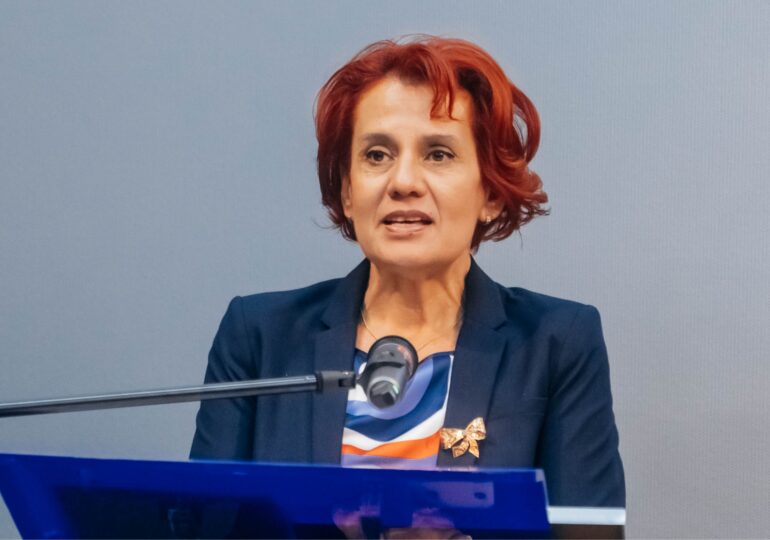Since becoming Minister of Education, Mr. Daniel David has epiphanies. So great that we can think he knew very little about pre-university education. This would place him right in the rule of which Prof. Mircea Miclea was the exception.
Respectable university ministers often have no clue about the overwhelmingly majority pre-university system in the field they manage and become prisoners of ossified state secretaries and directors in their positions.
But it's very good that Mr. David has these revelations about the pitiful state of the system. However, the expectation from the Minister of Education goes beyond press analysis and NGOs. The minister's mission is to come up with solutions.
His conclusion is flawless: "when psychocultural and socio-economic paradigms shift, favoring the resurgence of the irrational through pseudoscience, the Ministry of Education must protect people and ensure the development of a knowledge-based society."
But what do we do with it? How will the minister ensure education is in line with the protection of people and the supremacy of knowledge?
The first and so far only target of the minister are teachers. Justified, to a point. The quality of education is never higher than the quality of teachers' work. But the minister didn't primarily talk about quality. He talked about quantity.
"The teacher's status, including salary, needs to change, but this comes with new responsibilities. This means I want them to spend more time in school. If you are paid for 8 hours, you stay 8 hours in school, not just the hours you have to teach. If you stay in school, you can create educational environments and the interaction with children is different," says the minister.
This statement bitterly reminded me of the first thing I heard during the only period I was employed by the state (and the only one in which I received public money): "Have you completed your hours?" I was explained that the only thing checked, based on which I received or did not receive my full salary, was the monthly logging of work hours: 8 multiplied by the number of working days in the month, which I had come to calculate with utmost care.
Therefore, the minister's first expectation, perfectly adapted to the logic of state work, is for teachers to complete their state hours at the workplace, regardless of whether they have work to do or not. From Professor David's point of view, teachers are paid to stay 8 hours, not to teach impeccably for the hours they have to teach?
Should the teacher create an educational environment to interact with children? Where exactly should they create it? In what spaces? In what time of the students, suffocated by an already unbreathable schedule? What logistical conditions exist in schools for this environment, so that it is not just words? Should teachers be the ones to create it all?
Sure, they can do immense bureaucracy at school, which they are required to do every month, but I don't see any benefit for the students.
Probably Mr. David somehow hits the tutoring industry, which would leave teachers with less time. It's an illusion. It will only disappear when it is no longer needed, when exams look different.
And for now, the minister shows no sign of wanting to change anything in this regard. It seems he turns a blind eye, apparently, that even the future dual high school admission system is designed to stimulate this industry and worsen the inequalities in the education system.
Furthermore, the minister announces with an air of normality that he agrees with the dreadful entrance exam for the 5th grade, for which third and fourth graders start tutoring and get caught in a whirlwind of completely toxic emotions for their age.
Are there teachers who skip classes? Of course. Who don't do their job? Undoubtedly. But the minister should target them, not demonize all of them. And, what do you know, the first ones who can't do their job are the school inspectors who deal simultaneously with inspection, mentoring, and politics. I haven't heard the minister make any statements in that direction.
The minister notes that good graduates are avoiding education, causing a teacher crisis. Surely they will be attracted to a system suffocated by bureaucracy, with higher salaries through an increase in the teaching load, and where they will be tied to the school building, whether they have something to do there or not.
It is true that, as Mr. David says, education reform is needed. With whom does he want to think and implement it? Since coming to the ministry, he has been surrounded by the same ministry leaders entrenched in their positions, politically defined clients. Paraschiv, Lazăr, Ion are guarantees of failure, people who were complicit in the current disaster.
When we see the minister accompanied by other people, experienced teachers with results in the classroom, loved by students and with reformist ideas, then I will believe that there is a chance for real reform. It's not the case. The minister is bandaging the gangrene with statements of a competent analyst waiting for the determined and professional action of a minister.
After months in office, his baccalaureate begins, organized above the courses of other students, with the hope that the topics will be well formulated and the criteria correct. A fragile expectation after during the national evaluation simulation, also under the minister's mandate, one of the Romanian language topics contradicted exactly what the minister claims.
Students with critical thinking and attention were deducted points, but those who mechanically, not just logically, but also factually incorrectly ticked off were awarded points. Obviously, nothing happened to anyone.

